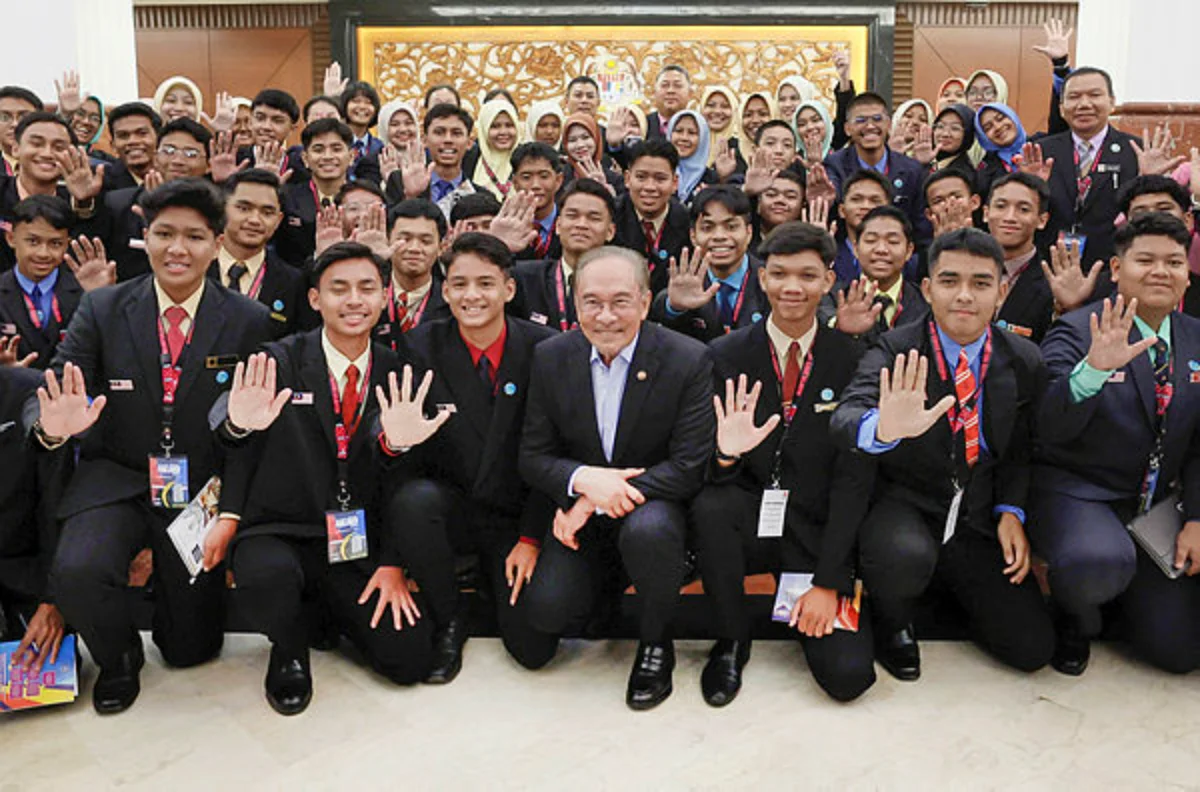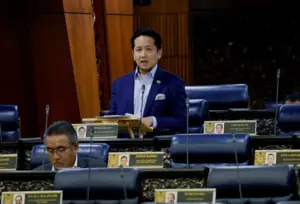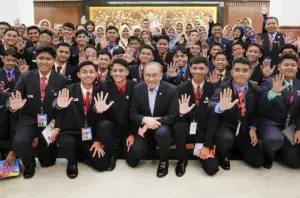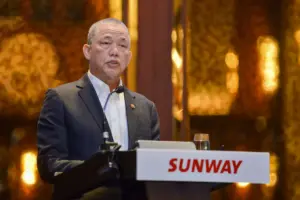Reforms under Madani framework drive growth, cut deficit and boost investor confidence, says Anwar
PETALING JAYA: Despite global economic headwinds, Malaysia’s total trade rose 4.4% from January to September this year to RM2.24 trillion, while the ringgit strengthened to RM4.16 against the US dollar, making it the best-performing currency in Asia, said Prime Minister Datuk Seri Anwar Ibrahim.
“Previously, the ringgit was heavily attacked and depreciated. Now that it has strengthened, not a word is said about it.
“This was achieved amid an uncertain global economy, particularly due to tariffs imposed by US President Donald Trump, yet trade still increased to approximately RM2.24 trillion,” Anwar said during Minister’s Question Time in Parliament yesterday.
He said the recognition was based on international assessments, not domestic claims.
“This measure is not determined by us, but by international credit ratings, which remain positive. S&P Global Ratings and Moody’s have both maintained Malaysia’s credit ratings at A- and A3 respectively, indicating a stable and strong outlook.”
Anwar said Malaysia recorded 4.4% economic growth in the first half of 2025 and 5.2% in the third quarter, with full-year growth expected to exceed earlier projections.
Per capita income also rose to RM54,793, higher than the previous year.
He emphasised that the fiscal deficit had been reduced from 5.5% in 2022 to 5% in 2023 and further narrowed in 2024, with a target of 3.8% for 2025 and 3.5% for 2026.
“From a fiscal policy standpoint, a growing deficit would burden the economy and discourage investment. That’s why we are committed to reducing it,” he said.
On national debt, Anwar noted that new borrowings had decreased from RM100 billion in 2022 to RM77 billion, even as the government continued investing in essential infrastructure, flood mitigation, healthcare and education.
“We are still borrowing, but not excessively because we do not want to compromise basic infrastructure programmes, flood mitigation – including in Kelantan and Terengganu – healthcare and education.”
He said Malaysia achieved a record RM384.2 billion in investments in 2024, while the nation’s global competitiveness ranking climbed 11 places, its best performance in a decade.
Anwar said these achievements reflected the strength and resilience of the national economy, supported by a series of reforms under the Madani Economic Framework introduced in July 2023.
“More importantly, there is the issue of subsidy rationalisation, which has been discussed for decades but requires political will. Alhamdulillah, it was successfully implemented, resulting in national savings exceeding RM15 billion.”
On employment, Anwar said the unemployment rate fell to 3% in August, the lowest in 10 years.
He also noted that the minimum wage had been raised from RM1,200 to RM1,700 despite opposition from some business groups, while 153,000 employees under government-linked investment companies now earn a minimum living wage of RM3,100 per month.
“This was not easy because many companies opposed it but this is the strength and political will we have, to face the large corporate cartels that they themselves could not confront when they were in power.”
For farmers, the government raised the floor price for paddy twice to RM1,500, increased the paddy price subsidy by RM500, and doubled the rubber production incentive to RM3.
Anwar said targeted aid initiatives, including STR and i-SARA worth RM15 billion, had helped reduce hardcore poverty, while the upcoming civil service salary adjustment in January 2026 is expected to cost RM18 billion.
“Hardcore poverty can be eradicated, and we have the capacity to achieve this. That is why we can see that all state governments have given their cooperation and I express my gratitude for their support.”
Post Views: 1






